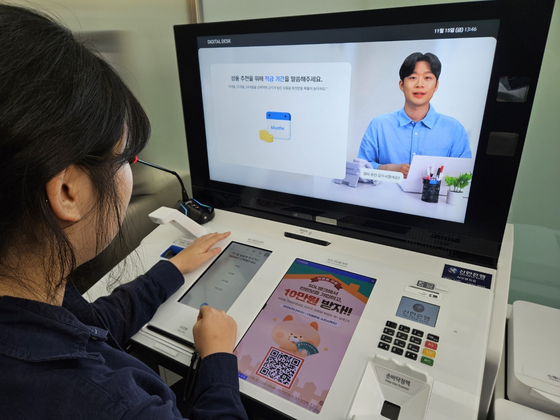The Future of Banking: Embracing AI Agents for Enhanced Financial Services

An AI assistant serves a customer at the AI-powered branch of Shinhan Bank in central Seoul. (SHINHAN BANK)
Imagine a banking experience where you no longer struggle with apps to find the best rates or wait endlessly on customer service calls. Soon, you could simply request, “Upgrade my loan to the lowest interest rate available,” or command, “Cap my credit card spending at $1,000 per month.” In mere seconds, an AI-powered platform could analyze market conditions, evaluate the best options, and optimize your financial decisions—all on your own.
The Rise of AI Agents in Finance
AI agents are becoming increasingly prevalent in the conservative realm of finance, evolving from basic customer service tools to sophisticated digital partners. They are enhancing tasks ranging from personalized customer service to real-time fraud prevention, tailoring services to meet individual needs.
Despite ongoing concerns about security breaches, experts anticipate that the adoption of AI agents will grow within the finance sector, as their efficiency and ability to deliver personalized solutions outweigh potential risks. According to Grand View Research, the market for AI agents in financial services was valued at $490.2 million in 2024 and is projected to reach $4.49 billion by 2030, growing at an annual rate of 45.4%.
Shinhan Bank’s Innovative Approach
Since launching an AI-exclusive branch in central Seoul last year, Shinhan Bank has made significant advances by leveraging AI agents to provide more complex services. The bank currently handles various tasks at AI service centers, such as currency exchanges and check card issuance. Plans are in place to introduce a voice-activated large language model (LLM) agent, capable of addressing complex customer inquiries and making tailored product recommendations.
Shinhan Bank aims to democratize wealth management by developing an AI agent to craft personalized financial strategies for clients across economic segments. This innovation could provide affluent-like financial consultation services to everyday customers.
Insights from Other Financial Institutions
KB Kookmin Bank is currently employing AI agents to assist employees in managing loans and private banking services. These agents generate essential documents and analyze data to support the decision-making process, thus enabling more informed client interactions.
Similarly, the Industrial Bank of Korea is using AI to streamline internal processes and enhance fraud detection. In collaboration with LG Group’s AI Lab, the bank aims to deploy AI systems that can autonomously generate financial reports and forecast market trends.
Global Perspectives on AI Adoption
Internationally, banks like JPMorgan Chase have fully integrated AI agents into their operations, improving efficiency in various areas such as risk management and wealth advisory. For instance, JPMorgan’s AI system can analyze transaction data to identify irregularities in real time, allowing for proactive risk mitigation strategies.
However, experts suggest that South Korea must accelerate its adoption of AI technologies to compete effectively on a global scale. The delay is largely attributed to stringent personal information protection laws and the lack of clear regulations governing data usage.
Balancing Opportunities and Risks
As AI agents revolutionize banking services, customers will gain unprecedented control over their financial profiles. This shift poses challenges for financial institutions, as traditional revenue streams generated from fees may decline. According to McKinsey & Company, embracing performance-focused products instead of solely relying on customer loyalty will be crucial for banks to thrive.
In parallel, banks are prioritizing robust privacy frameworks to safeguard sensitive customer information. Shinhan Financial Group, for example, has established governance standards to ensure the ethical deployment of AI technologies across its subsidiaries.
Conclusion: The Future of AI in Banking
As the financial landscape evolves with AI technology, institutions that successfully balance security and innovation will lead the charge in an AI-driven economy. The integration of AI agents heralds a new era of personalized financial services, empowering customers while simultaneously transforming how banks operate.
BY JIN MIN-JI ((email protected))

